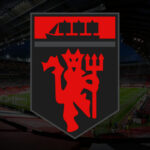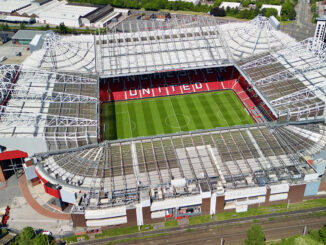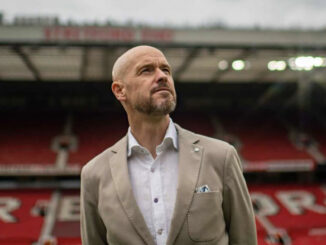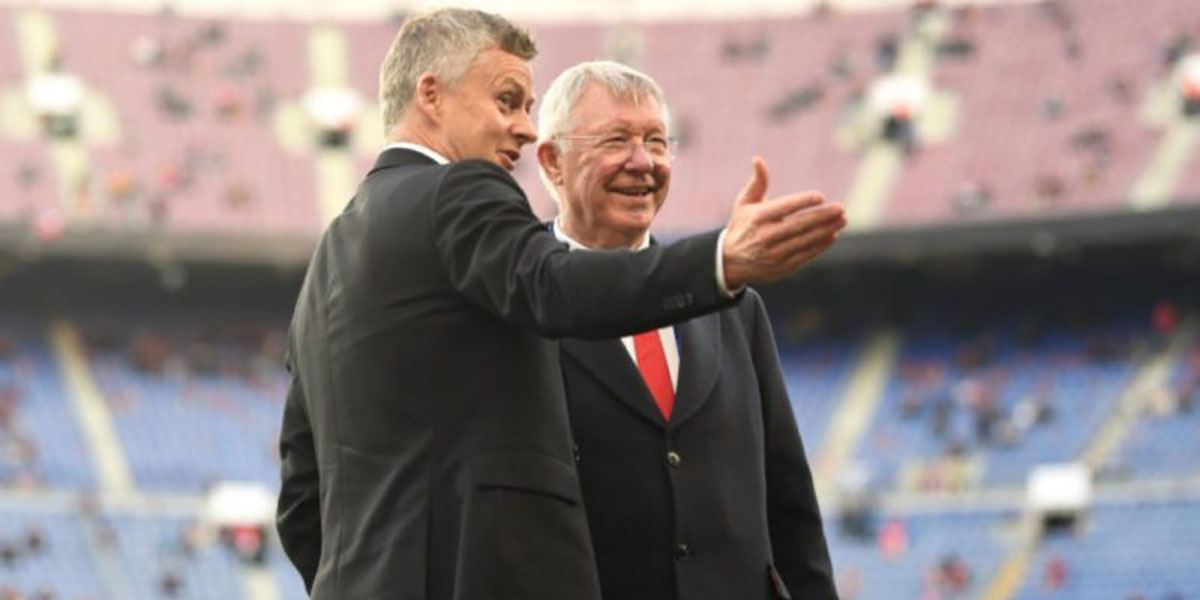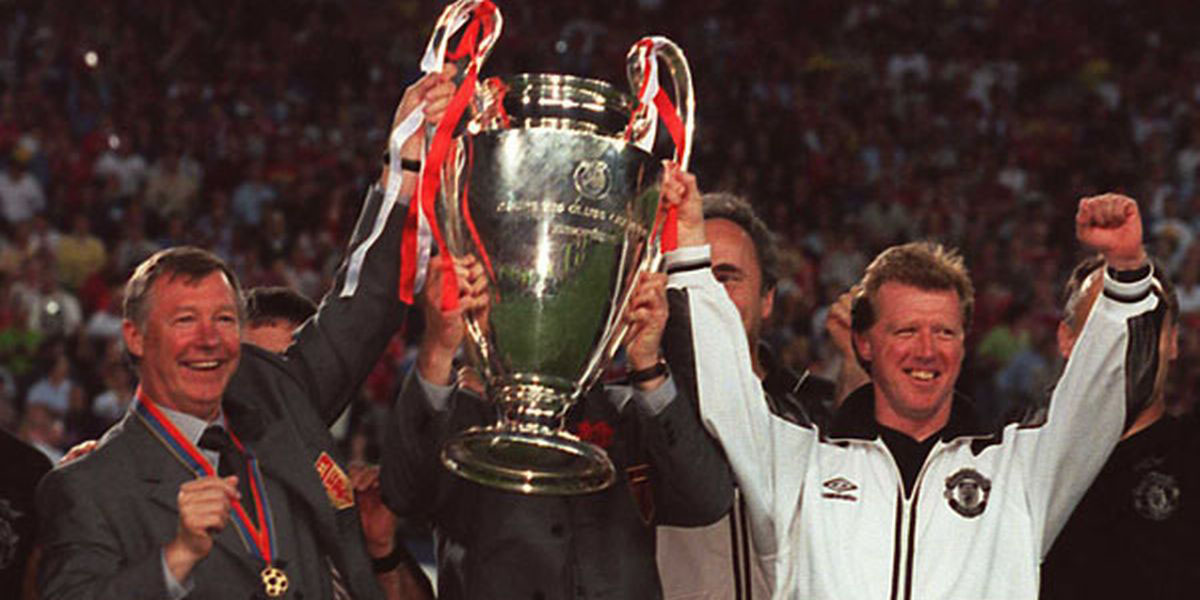
Ever since 1992, until Sir Alex Ferguson retired in 2013, winning league titles and cup competitions was in the DNA of Manchester United. In this time, Ferguson has built many great teams adapting to each decade. He started off in the mid 1980’s with United’s arch rivals Liverpool dominant and ever since, Ferguson would not rest till he knocked them off their perch and he most certainly did that.

The Foundations
Ferguson was appointed Manchester United manager in 1986 and in his 27 years at the club won 13 Premier League titles, two Champions Leagues and five FA Cups in his reign, amongst other things. To many he’s known as the greatest football manager to ever live and with a great manager often comes great teams and at United it was no different. Ferguson set out on continuing United’s legacy of using the youth as seen with the ‘Busby Babes’ through the ‘Class of 92’. This set of six players including the likes of Beckham, Scholes and Giggs gave United the foundations to a great team for the decade going forward. Then in the 1995/6 season Alan Hansen said; “You can’t win anything with kids,” after an opening day 3-1 defeat to Aston Villa.
However, after this, United went onto win the title and prove Hansen wrong. Despite this, key leaders and more established players where pivotal to the success with players like Eric Cantona and Roy Keane fulfilling this role. Cantona brought success to United instilling that winning expectation becoming one of the most influential players ever as United won the league in every season he played in bar his incident in January 1995. Roy Keane became the leader and role model the club needed to keep pushing them on. He provided that leadership in the dressing room if Ferguson wasn’t there, and kept the teams discipline intact. Cantona announced his retirement from football in 1997 without any European success.
Ferguson had won titles but now European glory was his one true desire. To establish this, Ferguson looked to create his next great centre half pairing after Bruce and Pallister. In 1998 United signed Jaap Stam from PSV Eindhoven for around £10 million. He was partnered with Ronny Johnsen who had joined in 1996. This was the pairing which inevitably a couple years later won the champions league together. So, with a solid defence and the work horse of Keane and talented Scholes, a great partnership was needed upfront. This was established through Dwight Yorke and Andy Cole. This pairing hac great chemistry scoring many goals together and playing an important role in winning the illustrious treble for Manchester United.
Results
This United team completed the famous treble in May of 1999, a feat no other team in English football had done before and to this day have done. A historic comeback in Barcelona against the great Bayern Munich with late goals from Ole Gunnar Solskjaer and Teddy Sheringham to seal the triumphant treble.

The Foundations
Fast forward a couple years and many of the Class of 92 had now hit their prime and passed it with Beckham leaving United for Real Madrid in 2003 and Gary Neville’s legs gradually going. Roy Keane after a bust up with Ferguson, left United in November of 2005 leaving Ferguson with a major rebuild. The pairing of Ronny Johnsen and Stam had both left and Cole and Yorke were gone to. The early 2000’s saw the rise of Arsene Wenger’s Arsenal doing the Invincibles in 2004 and Jose Mourinho’s Chelsea team conceding only 15 goals in the whole 2004-5 premier league title winning campaign. After a poor couple years Ferguson needed to get back to winning ways and the signing of Cristiano Ronaldo did just that.
He was a young teenager when he was purchased from Sporting Lisbon in 2003, but as the years went on, he got better and better before winning the Ballon d’Or in 2008. Ronaldo with Rooney and Tevez aside him created a thrilling front three, which was a sign of Fergusons brilliance as he adapted with football. His defensive stability came with the £30 million signing of Rio Ferdinand from Leeds United and Nemanja Vidic from Spartak Moscow. They became a formidable partnership which contributed to United’s triple succession of Premier League titles. A crucial part of the 2008 team was Ji Sung Park, although not the most expensive or highest rated, Park was one of Fergusons most underrated players, and had the energy and fitness levels to do jobs no other player could, like man marking Pirlo out of a game. Other big signings included, Patrice Evra, Michael Carrick, Rooney and Tevez and these all put the final pieces in United’s rebuild together.
Results
United won three Premier League titles back-to-back to back and in 2008, did the double winning in Moscow against Chelsea on pens after a famous John Terry slip.
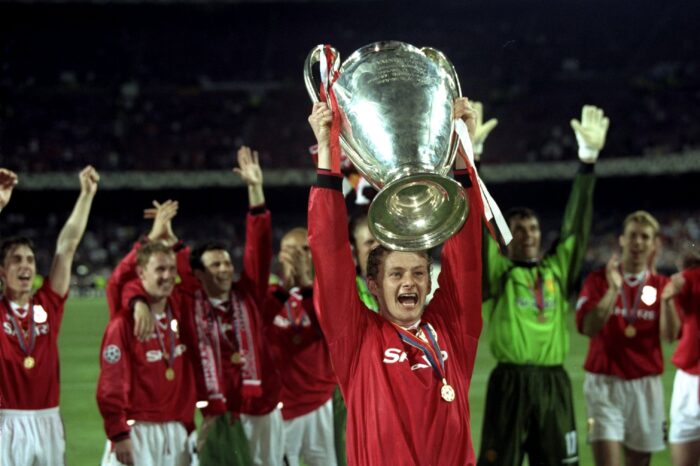
Comparison
The greatest difference between the two teams was the 1999 team won the treble and the 2008 team won the double. However, this doesn’t necessarily mean that the treble winning team was better.
Paths to Champions League wins
In 1999, United were drawn into a group with big teams like Bayern Munich and Barcelona managing to qualify in second place having drawn 3-3 at home and similarly away against Barcelona, and then draw 2-2 away to Bayern and 1-1 at home. In the quarter finals they faced group C winners Inter Milan. In the home leg United won 2-0, and away they secured a 1-1 draw to see them through to the semi-finals to face Juventus. Against Juventus they drew the first leg at home 1-1, before a selfless captain’s performance from Roy Keane in the second leg saw him lead United to a 3-2 victory away in Turin. This drew United against Bayern Munich in the final at the Camp Nou, and two later goals from Sheringham and Solskjaer and the rest was history. This night becoming the greatest night in the history of Manchester United football club.
In 2008, United were drawn into a group with Sporting, Roma and Dynamo Kiev, in which they finished top of the group having won all their games bar one draw against Roma away. This resulted in United being drawn against Lyon. In the first leg away United drew 1-1 thanks to a late equaliser from Carlos Tevez and then at home won 1-0 securing their place in the quarter finals. This drew them against Roma again, which United progressed through comfortably with a 2-0 win away, and a 1-0 win at home in the second leg, placing them up against Barcelona in the semi-finals. Both legs were incredibly even and tight but the one moment of brilliance came from a Paul Scholes longshot on the edge of the box to send United through to face Chelsea in the final in Moscow. The final was a controversial and thrilling game which saw United the victors on penalties after extra time. This won United their third European cup and was a great season overall.
Comparing different decades is very difficult but arguably the 1999 Champions league run was harder as they faced Barcelona and Bayern in the group escaping both of them and then got past Juventus and Inter Milan and then beating Bayern Munich in the final whereas the 2008 team had an easier group with Sporting and Roma as the biggest teams and in the knockouts faced Roma again, and then the difficult Barcelona before beating Chelsea in the final. Therefore, I would say in the Champions League, the 1999 team had a harder route and as a result, was a more successful accomplishment especially as they had just won the FA Cup and Premier League as well so the team would be fatigued.

However, in the Premier League, it saw the 2008 team finish top ahead of Chelsea with 87 points, whereas in 1999 they finished top ahead of Arsenal with 79 points. You could argue that the necessary points to win titles was different back then and managers focused less solely on just the league but also on other cups, but the 2008 team also won the Champions League despite finishing on eight points more. Therefore, I would say in the Premier League the 2008 team were more successful.
One crucial difference between the two teams was the FA Cup. The 1999 team won the FA Cup, but the 2008 team didn’t. The 2008 team fell short against Portsmouth in the quarter finals who then went onto winning it, whereas the 1999 team never gave up especially against Arsenal in the semi finals which saw an extra time wonder goal from Ryan Giggs to send United into the final which they subsequently won.
Overall, I feel that the 1999 team were better, not just because they were more successful but also due to the teams they faced and came through and there winning mentality shining through overcoming any mental barriers they faced having fallen short in the European Cup on many occasions in years passed. Furthermore, others have done the double but the treble is hard to come by and is unique in England and that for me solidifies Manchester United’s 1999 team as the greatest team under Sir Alex Ferguson.
Finally, Sir Alex Ferguson had many key traits to his teams, that made them so successful. These traits include the winning mentality within the team, the togetherness of the squad and the fiery mentality which saw United never give up, and lead to many ‘Fergie time’ goals. United’s teams in the last decade have lacked these, especially team cohesion as under Mourinho, the club was dying and the players looked defeated, but Solskjaer is starting to bring this cohesion back as many players have spoken out about their happiness with Solskjaer as manager.
A never giving in attitude, has developed over the past season, as United have won many games in extra time signifying their belief that they can still win no matter how many seconds left. The winning mentality is something that still needs to be found as United have come short in four semi finals and one final under Solskjaer, and if Solskjaer can instil this into the players like Ferguson could, this 2021 Manchester United team could become a squad someone in 15 years will be writing an article about.
Written by Ethan Bents
Discover more from MUFCLatest.com
Subscribe to get the latest posts sent to your email.

